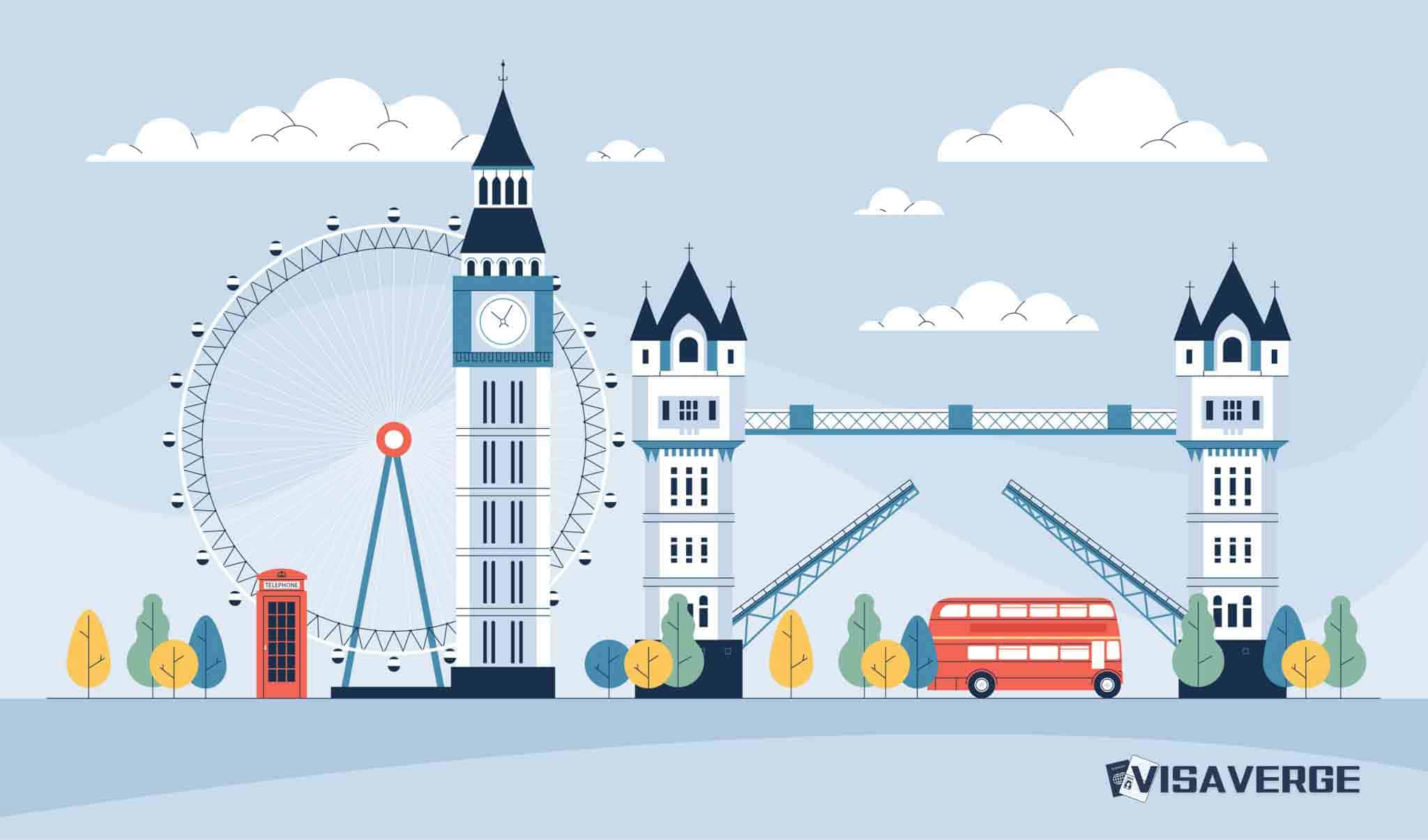The language used by the UK government and major news outlets about immigration has come under sharp scrutiny in 2025, as new research links it to a growing backlash against antiracism efforts. Since the Labour Party’s election win in 2024 and the rollout of sweeping immigration reforms, experts warn that the way immigration is discussed in politics and the media is shaping public attitudes and making it harder to fight racism.
In May 2025, the UK government published its white paper, “Restoring Control over the Immigration System,” promising a major overhaul of immigration rules. The government says these changes are needed to “reduce net migration, bring control and fairness to the system, and promote economic growth.” Most of the new rules took effect on July 22, 2025, and more changes are expected by the end of the year.

How Language Shapes Attitudes
Recent studies from leading UK universities show that the words used in political speeches and news stories about immigration matter a lot. Politicians and many news outlets now talk about “restoring control,” “reducing reliance on overseas labour,” and “protecting British jobs.” This language frames immigration as a problem or threat, rather than as something positive or necessary.
Sociologists and media experts say this shift in language has real effects. According to their research, when immigration is described as a risk to national control or economic stability, it encourages people to see migrants as outsiders or even as dangers. This, in turn, makes it harder for antiracism groups to get public support for their work. As one recent study put it, “The focus on control and threat in immigration debates has provided cover for rolling back antiracist initiatives.”
Backlash Against Antiracism
The backlash against antiracism in the UK is not just about policy—it’s about how people talk and think about who belongs. Campaigners say that when the government and media use language that paints immigration as a problem, it gives legitimacy to xenophobia (fear or dislike of foreigners) and makes it harder to build support for inclusion.
One antiracism campaigner explained, “When politicians talk about ‘protecting British jobs’ or ‘restoring control,’ it sends a message that migrants are to blame for problems in society. That makes our work much harder, because it encourages people to see antiracism as something that goes against the national interest.”
Key Changes in UK Immigration Policy
The UK government’s new immigration rules are some of the strictest in years. Here are the main changes:
- Skilled Worker Visa: The skills threshold has been raised to RQF Level 6, which means only jobs that require at least a bachelor’s degree now qualify. Over 110 jobs that used to be eligible have been removed.
- Salary Threshold: The minimum salary for skilled workers has increased from £38,700 to £41,700.
- Social Care Worker Visa: This route is now closed to new overseas applicants. Current workers can stay until July 2028, but no new applications are allowed.
- English Language Requirements: Applicants and their family members now need to show a higher level of English (B2 instead of B1) for most work visas.
- Settlement (Indefinite Leave to Remain): The time required to qualify for settlement has doubled from five to ten years for most visa categories.
- Visa and Nationality Fees: Most fees have gone up by 5–10% since April 2025.
You can find the latest official immigration rules and updates on the UK government’s immigration rules page.
Government and Opposition Responses
The Home Secretary and other senior Labour ministers say these changes are needed because net migration has risen sharply, from 224,000 in June 2019 to 906,000 in June 2024. They argue that the public wants more control over who comes to the United Kingdom 🇬🇧, and that the new rules will make the system fairer and more sustainable.
However, opposition MPs, migrant rights groups, and antiracism campaigners strongly disagree. They say the government’s language and policies are making life harder for migrants and minority communities. One advocacy group said, “The rhetoric coming from both politicians and the media has made it acceptable to blame migrants for social and economic problems. This not only fuels discrimination but also undermines the fight against racism.”
Media’s Role in Shaping the Debate
Most major newspapers and broadcasters have echoed the government’s language, focusing on “uncontrolled migration” and “pressure on public services.” Some outlets have even amplified fears about migrants taking jobs or straining the NHS. However, a few media voices have called for more balanced reporting, pointing out the positive contributions migrants make to the economy and society.
A media analyst noted, “When the news only talks about the risks of immigration, it’s easy for people to forget that migrants are also doctors, teachers, and business owners who help the country thrive.”
Impact on Migrants and Minority Communities
For people who have moved to the United Kingdom 🇬🇧 or who belong to minority groups, the new language and policies have made daily life more difficult. Many migrants say they feel less welcome and more likely to face discrimination at work or in public. Some report being treated with suspicion or even hostility, especially in areas where anti-immigrant sentiment is strong.
A nurse from Nigeria 🇳🇬 who has worked in the NHS for five years shared, “I used to feel proud to help people here. Now, with all the talk about ‘reducing reliance on overseas labour,’ I sometimes wonder if I’m really wanted.”
Challenges for Employers
Employers, especially in health and social care, are worried about the new rules. Many of these sectors have relied on overseas workers to fill important jobs. With the closure of the Social Care Worker visa and higher skill and salary requirements, employers fear staff shortages and increased costs.
A care home manager explained, “We already struggle to find enough staff. These changes mean we’ll lose good workers and have a harder time recruiting new ones. It also sends a message that our overseas staff aren’t valued.”
Employers are also being told to review their own language and diversity policies. Experts recommend that businesses make sure their internal communications do not repeat exclusionary narratives and that they support all staff, regardless of background.
Antiracism Campaigns Face New Obstacles
Groups working to fight racism say the current climate makes their work much more challenging. When immigration is framed as a threat, it becomes harder to convince the public that antiracism is important for everyone. Some campaigns have seen a drop in volunteers and donations, while others report more negative comments online and in person.
One campaign leader said, “We need to remind people that fighting racism isn’t just about helping migrants—it’s about building a fairer society for all. But that message gets lost when the main story is about ‘restoring control’ or ‘protecting jobs.’”
Expert Warnings and Broader Implications
Policy experts warn that the new language and rules could have long-term effects on the United Kingdom’s 🇬🇧 reputation as a diverse and open society. They say that exclusionary rhetoric may discourage talented people from coming to the country, including high-skilled workers and international students. This could hurt the economy and reduce cultural exchange.
A university researcher explained, “If the message is that migrants are not welcome, people will go elsewhere. That means fewer skilled workers, less innovation, and a less vibrant society.”
Quantitative Data and Key Facts
- Net migration: 906,000 (June 2024)
- Skilled Worker visa salary threshold: £41,700 (from July 22, 2025)
- Number of occupations removed: 110–112
- Fee increases: 5–10% for most visa and nationality applications (April 2025)
- English language requirement: Raised from B1 to B2 for Skilled Worker visas
- Settlement qualifying period: Increased from 5 to 10 years for most categories
| Visa Type | Minimum Salary | Status | Fee Type | Increase |
|---|---|---|---|---|
| Skilled Worker Visa | £41,700 | N/A | N/A | N/A |
| Social Care Worker Visa | N/A | Closed to new applicants | N/A | N/A |
| N/A | N/A | N/A | Visa and Nationality Fees | 5-10% since April 2025 |
Historical Context
The debate over immigration in the United Kingdom 🇬🇧 has always been linked to questions about identity, the economy, and social cohesion. Since the Brexit referendum in 2016, the language around immigration has become much tougher. Governments have increasingly described immigration as a challenge to be managed, rather than an opportunity for growth.
The 2024–2025 reforms are the strictest in over a decade, and the language used to explain them has reinforced a more restrictive approach. According to analysis by VisaVerge.com, this combination of policy and rhetoric is likely to shape public attitudes for years to come.
What’s Next?
The UK government has said that more changes may be coming, with ongoing reviews by the Migration Advisory Committee. Advocacy groups are preparing legal challenges and public campaigns to push back against both the new rules and the language used to justify them. They argue for a more inclusive approach that recognizes the benefits of immigration and the importance of antiracism.
Practical Guidance for Affected Groups
- Migrants and their families: Stay informed about the latest immigration rules and deadlines. If you are affected by the new skill, salary, or language requirements, seek advice from trusted sources or legal experts.
- Employers: Review your recruitment and diversity policies. Make sure you understand the new visa rules and support your overseas staff during the transition.
- Antiracism campaigners: Focus on building broad coalitions and sharing positive stories about migrants’ contributions. Use clear, inclusive language to counter negative narratives.
Where to Find Official Information
For the most up-to-date details on immigration rules, visit the official UK government immigration rules page. This site provides the latest changes, official forms, and guidance for both individuals and employers.
Conclusion and Takeaways
The way immigration is discussed in the United Kingdom 🇬🇧 is not just a matter of words—it shapes real lives and public attitudes. As the government rolls out stricter immigration rules and the media focuses on control and risk, antiracism efforts face new challenges. Migrants, employers, and campaigners must adapt to a changing environment, while experts warn of long-term risks to the country’s openness and diversity.
Moving forward, it will be important for all sides to use language that recognizes the value of migration and the need for fairness. By focusing on inclusion and evidence-based policy, the United Kingdom 🇬🇧 can work toward a society that is both secure and welcoming.
This Article in a Nutshell













